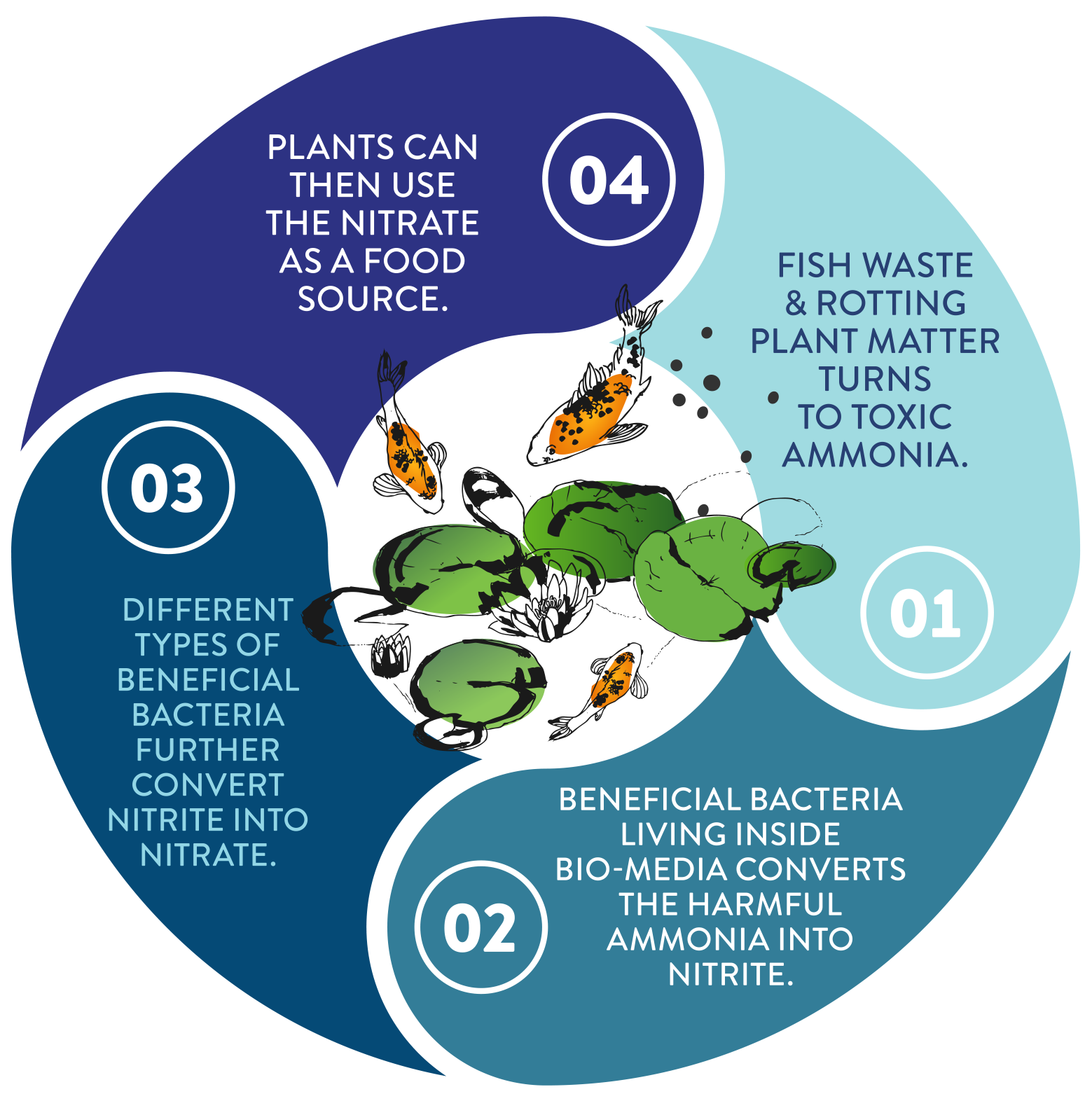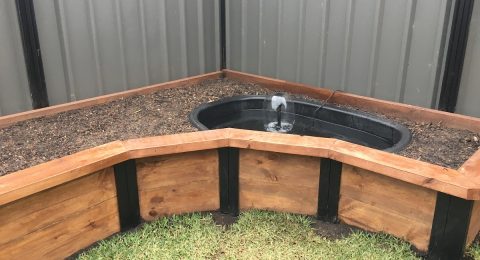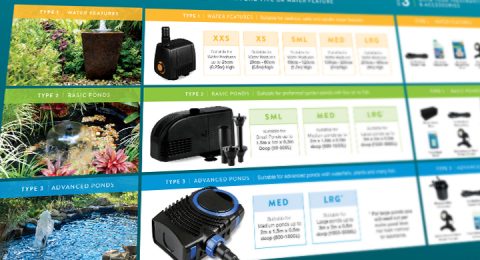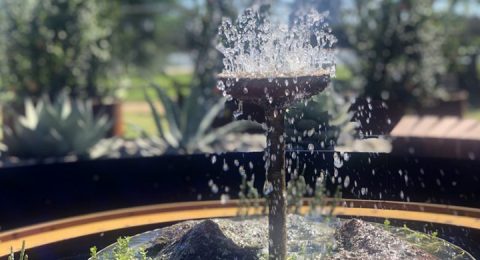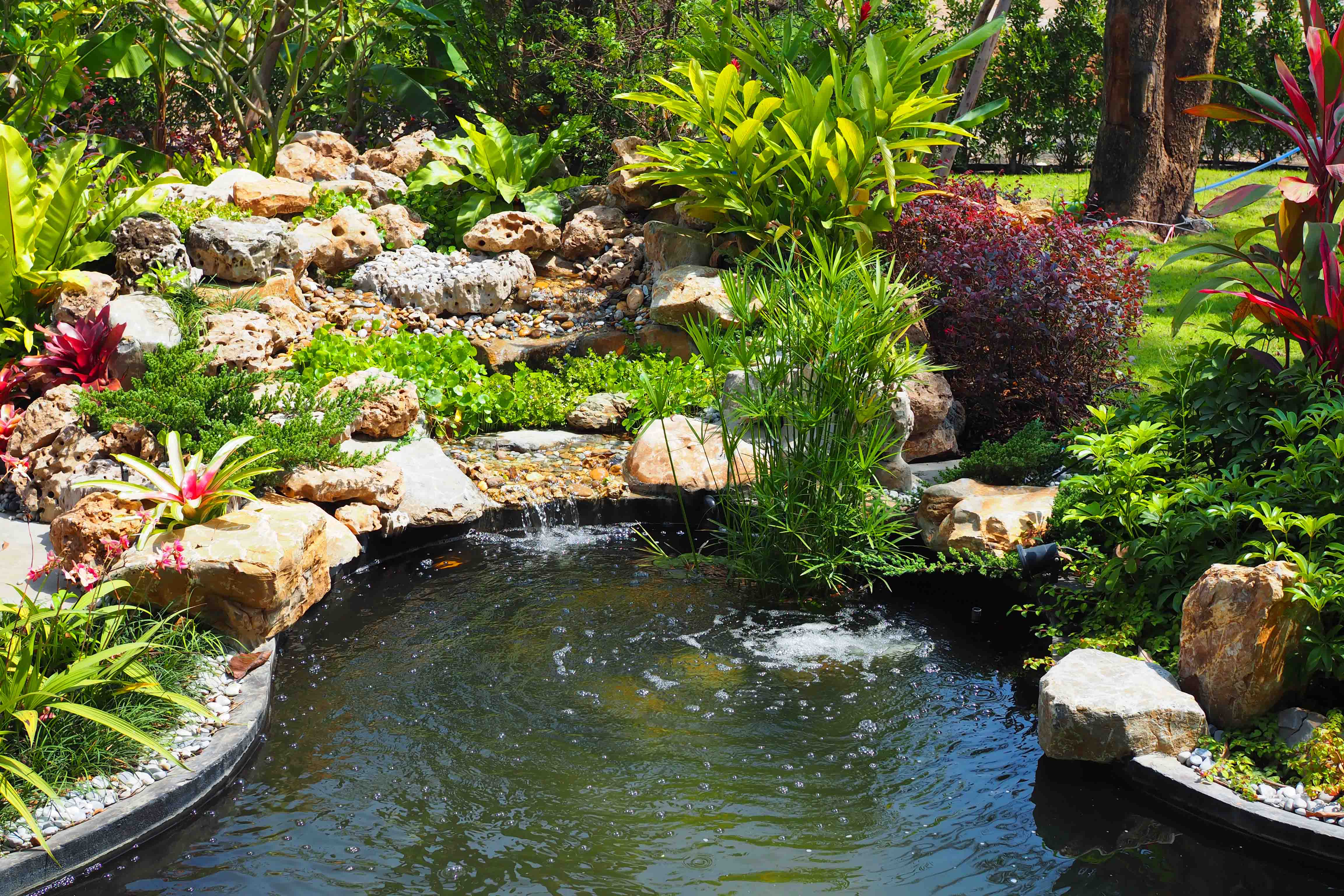
Keeping Your Pond Clear, Clean and Healthy
Learn how to maintain and manage your living pond.
Whether you are a beginner or experienced water gardener, you will probably have one objective and that is a clear, clean healthy pond.
The Basics
Ponds will be affected by various factors, such as unconsumed fish food, decomposing vegetation and fish excrement. If these pollutants are allowed to accumulate over time they will become harmful to your fish and produce green unsightly water. Filters for ponds usually combine both biological and mechanical filtration.
Biological Filtration
Biological filtration is when bacteria living in the Bio-media converts toxic pollutants (Nitrate Ammonia) into nutrients and provides good quality water.
Mechanical Filtration
Mechanical filtration removes the solid particles in the water by brushes or filter matting.
Points to Consider
Equipment and Materials
Filter sizing is based on the pond volume calculations, and fish stocking densities. Always go bigger to get better performance.
Correct Equipment
Remember when making your selection that if your pond volume is close to the maximum capacity of the filter in mind then we suggest you choose the next model up. If unsure always upsize. Look for filtration with clear water and product guarantees. We recommend you to check out this product: AQUAPRO 1000 All in One Pump and Filter Combo
Completely Circulating Water
All of the pond water needs to pass through the biofilter. The pump needs to be at one end and the bio-filter at the other.
Continuous Filtration
Pond filtration needs to run 24 hours a day. Bacteria in the biological filter will die if it goes without water and oxygen. Bacteria can take 4-6 weeks to fully establish, and sometimes longer.
Don’t Overstock
Over stocking of fish will strain the pond filtration system and start producing toxic water.
Use Water Plants
Water plants are vital in maintaining the balance in the ponds ecosystem. Plants remove nitrates, increase oxygen levels and provides somewhere for your fish to hide and feel safe.
Don’t Overfeed Fish
Pond fish cannot eat a great quantity of food at one time therefore little and often must be the rule. Overfeeding increases the danger of polluting the pond.
Remove / Restrict Pollutants and Debris
Leaves, debris and fertiliser allowed to enter the pond will all break down into ammonia, which is toxic to livestock. Remember to remove pollutants or/and use a pond net to cover the pond.
The Nitrogen Cycle
In all ponds with fish you need a filter, which accelerates the nitrogen cycle and acts like a mini ‘sewage treatment works’.
The cycle takes approximately 4-6 weeks to fully mature with continuous 24hr circulation.
It is essential the pump is not turned off as the good bacteria will die quickly and the cycle will be broken.
